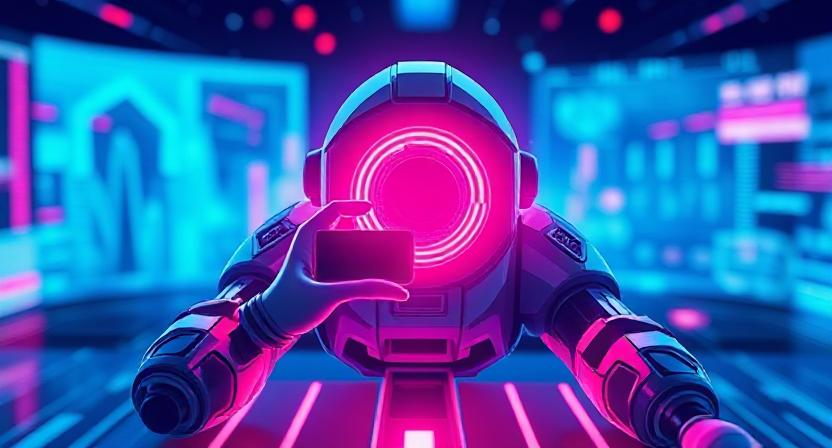Technology has always been at the forefront of human progress, transforming the way we live, work, and interact. As we step into 2025, the tech landscape is evolving at an unprecedented pace, bringing futuristic innovations to life. From artificial intelligence to quantum computing, and from space exploration to biotech advancements, this year promises to be a game-changer in multiple domains. Let’s dive into the latest tech innovations that are shaping our future right now.
1. Artificial Intelligence (AI) & Machine Learning (ML) Advancements
AI has been the cornerstone of technological evolution in the past decade, and 2025 is no exception. With the rise of Generative AI models and self-learning systems, AI is set to revolutionize industries like healthcare, finance, education, and cybersecurity.
AI in Healthcare
The integration of AI in healthcare has led to breakthroughs in disease detection and personalized medicine. AI-powered algorithms can now diagnose conditions such as cancer, Alzheimer’s, and heart disease with greater accuracy than human doctors. Robotic-assisted surgeries are becoming more refined, reducing risks and improving patient recovery times.
AI in Finance
The financial sector is witnessing AI-driven automation in fraud detection, risk assessment, and investment strategies. AI-powered robo-advisors are providing smarter investment recommendations, helping investors maximize their returns with minimal risk.
AI in Education
Adaptive learning platforms are using AI to create personalized learning experiences. AI chatbots and virtual tutors are providing students with instant assistance, improving engagement and learning outcomes.
2. Quantum Computing Breakthroughs
Quantum computing, once a theoretical concept, is now a reality. Companies like IBM, Google, and startups like Rigetti Computing are making significant progress in building quantum processors that can solve complex problems much faster than classical computers.
Real-World Applications
Drug Discovery: Quantum computers are accelerating the process of discovering new drugs by simulating molecular interactions at an atomic level.
Cryptography: Traditional encryption methods are at risk due to quantum computing, leading to the development of quantum-resistant encryption techniques.
Optimization Problems: Quantum algorithms are being used to optimize logistics, financial modeling, and artificial intelligence processes.
3. 5G & 6G Networks: Hyper-Connected World
The rollout of 5G networks worldwide has already transformed industries by enabling faster and more reliable internet connections. In 2025, we are witnessing early-stage developments in 6G technology, promising speeds up to 100 times faster than 5G.
Impact on Industries
Autonomous Vehicles: Ultra-low latency will enhance vehicle-to-vehicle (V2V) and vehicle-to-infrastructure (V2I) communication, making autonomous driving safer.
Smart Cities: Enhanced IoT connectivity will improve smart city infrastructure, optimizing energy usage, traffic management, and public safety.
Immersive Experiences: The combination of 6G and AR/VR will create ultra-realistic virtual environments, revolutionizing gaming, training, and remote work.
4. Augmented Reality (AR) & Virtual Reality (VR)
The metaverse concept is evolving rapidly, thanks to improvements in AR and VR technologies. Companies like Meta, Apple, and Microsoft are investing heavily in immersive experiences.
Use Cases
Retail: AR-powered virtual try-ons are improving online shopping experiences.
Healthcare: VR is being used for medical training, enabling doctors to practice surgeries in a risk-free virtual environment.
Workplace: Remote collaboration is becoming more interactive with VR-powered virtual meetings and training programs.
5. Robotics & Automation
Robots are becoming smarter, more adaptive, and capable of performing complex tasks with minimal human intervention.
Key Developments
Humanoid Robots: Advanced AI-powered robots like Tesla’s Optimus and Boston Dynamics’ Atlas are capable of assisting in warehouses, homes, and even elderly care.
AI-Powered Drones: Used in agriculture, surveillance, and logistics, AI-driven drones can analyze vast areas efficiently.
Automated Factories: With the help of AI and IoT, factories are becoming more autonomous, reducing human errors and increasing production efficiency.
6. Blockchain and Decentralized Finance (DeFi)
Blockchain technology is expanding beyond cryptocurrencies. Decentralized Finance (DeFi) platforms are providing financial services without traditional banks.
Innovations
CBDCs (Central Bank Digital Currencies): Governments are introducing digital currencies for faster and more secure transactions.
Smart Contracts: Automating legal agreements without intermediaries.
NFTs Beyond Art: Non-fungible tokens (NFTs) are now being used for digital identity, gaming, and intellectual property rights.
7. Sustainable Technology & Green Energy
With climate change becoming a global concern, sustainable tech innovations are playing a crucial role in reducing carbon footprints.
Advancements
Solid-State Batteries: Offering longer-lasting and safer energy storage for electric vehicles (EVs).
Hydrogen Fuel Cells: Providing clean energy alternatives to fossil fuels.
Carbon Capture Technology: Actively reducing CO2 emissions from industries.
8. Space Exploration & Colonization
Space technology is reaching new heights with ambitious missions from NASA, SpaceX, and private space companies.
Major Developments
Mars Colonization: SpaceX aims to send humans to Mars by the late 2020s, with 2025 being a crucial year for technological tests.
Lunar Bases: NASA’s Artemis program is working on establishing a sustainable human presence on the Moon.
Space Tourism: Companies like Blue Origin and Virgin Galactic are making space travel accessible to civilians.
Conclusion
2025 is proving to be a landmark year for technological advancements. From AI and quantum computing to green energy and space exploration, these innovations are shaping the future of humanity. As we embrace these changes, staying informed and adapting to the evolving digital landscape will be crucial. The future is here, and technology is leading the way!
